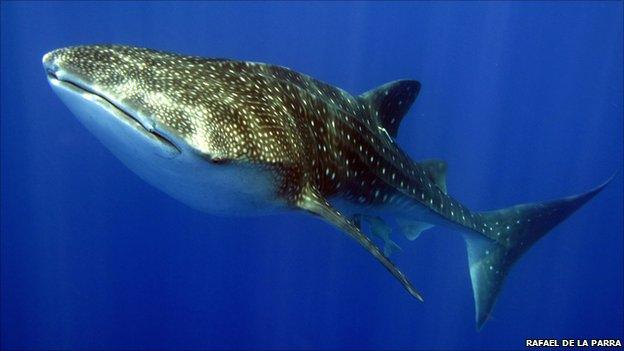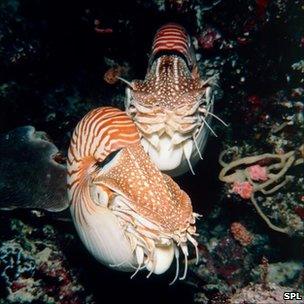UN asks for action on nature loss, citing poverty
- Published

A sharp increase in protection for ocean life is urged by conservationists and some governments
Governments must protect nature better in order to safeguard their countries' wealth, says the UN, as ministers meet for a day of talks on biodiversity.
The session at UN headquarters co-incides with the final day of talks on the Millennium Development Goals, and the UN says the two issues are linked.
Delegates are to discuss why they have failed to meet a 2010 target for curbing loss of biodiversity.
Conservationists are calling for at least a 10-fold increase on spending.
They will also be urging governments during the session on Wednesday to combine action on biodiversity loss and climate change, which they say are inextricably linked.
In a separate move, Palau and Honduras are requesting more countries to ramp up protection of marine life.
But the main message - from the UN and activists alike - is that governments must urgently increase efforts to protect biodiversity and ecosystems.
"Biological diversity underpins ecosystem functioning and the provision of ecosystem services essential for human well-being," says UN Secretary-General Ban Ki-moon in a document setting out the reasons why he called for the day's discussions.
"Its continued loss, therefore, has major implications for current and future human well-being... The maintenance and restoration of natural infrastructure can provide economic gains worth trillions of dollars a year."
The argument is that nature provides "ecosystem services" that humanity uses - such as pollination of agricultural crops by insects. If this is lost, the food supply falls.
Leading question
"[This day of talks] is a really positive move, because for a long time there's been a lack of appreciation that in order to meet the Millennium Development Goals we need to conserve biodiversity as well," said Jane Smart, head of the species programme within the International Union for the Conservation of Nature (IUCN).

Coral reef loss provides a clear link to human poverty, conservationists argue
"All of the indicators of anything we can measure show it's very bad news out there - one in threee amphibian species threatened, one in four mammals, a third of reef-building corals - and when you see that figure, it's pretty obvious there's a link to livelihoods," she told BBC News from the UN in New York.
Coral reefs are important nurseries for fish and other marine creatures, and provide income from tourism.
In 2002, governments adopted the goal of significantly reducing the global rate of biodiversity loss by 2010.
It has been clear for a couple of years that this would not be met. At next month's UN Convention on Biological Diversity (CBD) meeting in Japan, government delegates will discuss why they have failed on this target, and set new targets along with measures designed to ensure this set is met.
The New York session provides up to 140 heads of state and government attending with an opportunity set the parameters for that Japan meeting.
"The last time we had this number of leaders together talking about biodiversity was the Earth Summit back in 1992," said Russ Mittermeier, president of Conservation International.
While some analyses suggest a 10-fold increase in spending from rich governments is needed to halt the global decline, Dr Mittermeier said the true figure could be closer to 50-fold.
"We're not going to get a 50-fold increase [in New York], but we do need much more ambition in terms of spending, and in terms of increasing protected areas which are the most effective tool we have."
The Japanese government has proposed that the next 10 years be declared the International Decade of Biodiversity, and some conservation groups will be urging leaders in New York to back the move.
Japanese campaigners are also calling on the US to ratify the UN biodiversity convention. It is the only major nation to remain outside.
Shark attack
Last year, the tiny Pacific nation of Palau declared its entire terroritorial waters to be a shark sanctuary.
In New York, along with Honduras, it is calling on other countries to do the same.
"Our President is also going to ask for international action to address shark killing on the high seas - you can't have one without the other," said Palau's UN ambassador Stuart Beck.
"In Palau, the reefs depend on the predators - and sharks are the top predators - because if you take them out, what proliferates will kill the reef, parrotfish for example," he said.
Although more than 10% of the world's land area is protected, the figure for the oceans is closer to 1% - which is why initiatives such as this are supported by many conservation groups.
Richard.Black-INTERNET@bbc.co.uk
- Published20 September 2010